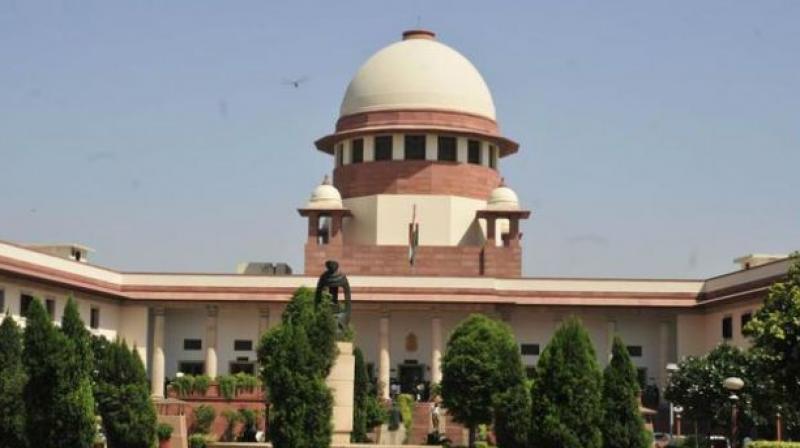Rajiv Gandhi assassination case: SC asks Centre to decide on remission in 3 months

New Delhi: The Supreme Court on Tuesday directed the Centre to convey its decision on the Tamil Nadu government's proposal sent on February 19, 2014 to grant remission and release the seven convicts in the Rajiv Gandhi assassination case, who are in jail for the last nearly 27 years.
A three-judge bench of justices Ranjan Gogoi, A.M. Sapre and Navin Sinha, after hearing Additional Solicitor General Pinky Anand and senior counsel Rakesh Diwedi for Tamil Nadu, granted three months time to the Centre to convey its decision on the proposal. Justice Gogoi orally observed that if the Centre takes a decision on the proposal, then it would put an end to the whole issue.
In December 2015 a five-judge Bench had held that the State has no power to order suo motu release of seven convicts, viz Murugan, Santhan, Periarivalan (whose death sentence was commuted to life sentence) and that of Nalini, Robert Pius, Jayakumar and Ravichandran, serving life term by granting remission.
The court had held that in cases investigated by the CBI, the State can grant remission only with the consent of the Union Government.
However, the court had said the validity of the order passed by the TN government on February 19, 2014 to release the convicts by granting them remission will be considered afresh by another three-judge bench in the light of the principles laid down in this verdict. Accordingly the matter was listed today before the bench headed by Justice Gogoi. As the Centre rushed to the court and obtained stay of their release, it did not either approve or disapprove the State’s proposal.
On Tuesday it was brought to the notice of the court that though it was held that Tamil nadu should consult the Centre in the grant of remission, the Centre was yet to take a decision on the proposal though its validity is under challenge. Taking note of this submission, the Bench asked the Centre to decide on the proposal in three months.
The Constitution Bench had rejected the submission that life sentence would mean only 14 years and held that life sentence would mean life sentence for the rest of their life.

